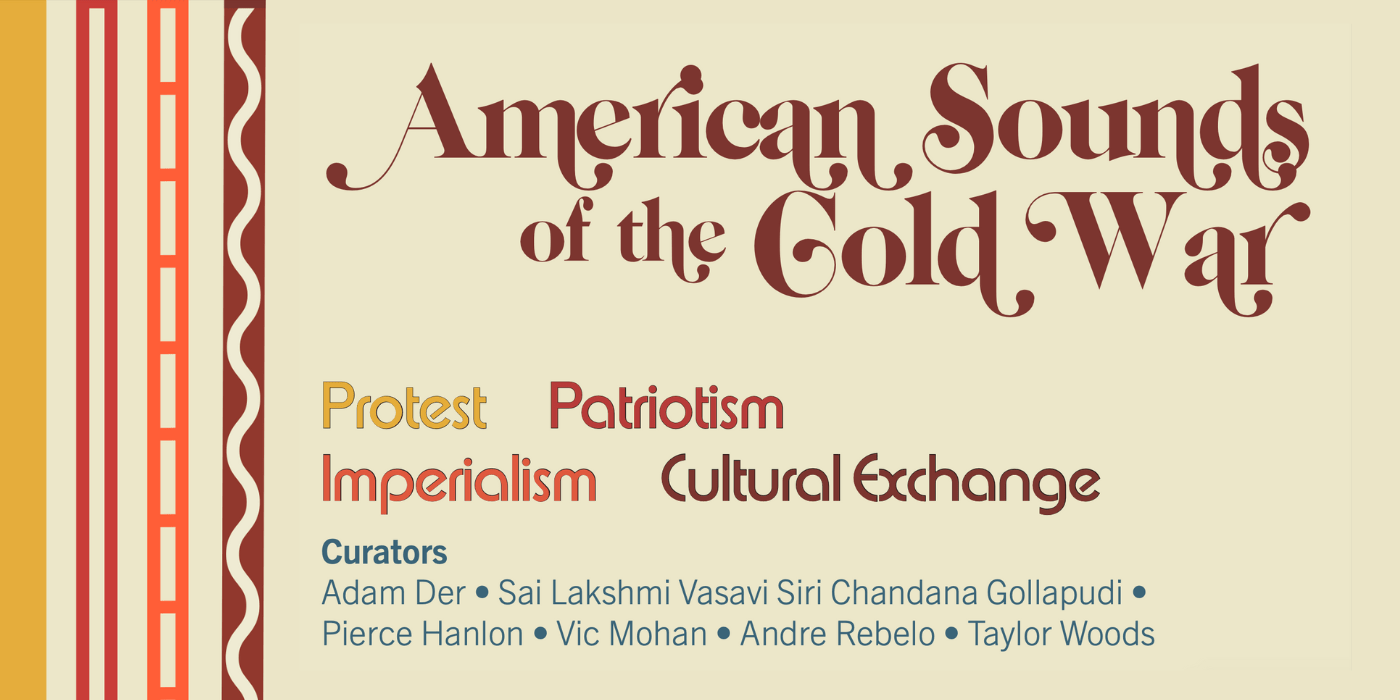
Location: Michelle Smith Performing Arts Library, The Clarice Smith Performing Arts Center
Join us at the Michelle Smith Performing Arts Library for the exhibit open house, "American Sounds of the Cold War," which explores the influence of music and its role during the Cold War. Curated by Immersive Research Internship Experience (IRIE) student interns, this exhibit was developed under the guidance of Elizabeth Massey, Arts for All Faculty Fellow and assistant clinical professor in FIRE: First-Year Innovation and Research Experience and Miah Duncan, research fellow.
More about the Exhibit
During the 1960s, the Cold War zeitgeist in the U.S. was especially turbulent. The U.S. government used propaganda against the U.S.S.R. both domestically and internationally, resulting in a wide array of strong cultural responses. In “American Sounds of the Cold War,” we examine music and the functional role it played in this era to gain a better understanding of these dynamics. Music of the time reflected and reified the cacophony of differing values that led people to have such strong reactions to Cold War events. Patriotism and militarism were met with activism and protest, and the aims of American imperialism were complicated by the genuine exchange and connections made between musicians and diplomats working within the Cultural Presentations Program of the U.S. State Department. We highlight both top-down structures—including the more covert motives of administrators—and bottom-up agency—including individual artists and their audiences—to investigate multiple perspectives. Through analysis of primary sources from the University of Maryland’s Special Collections in Performing Arts and the Special Collections and University Archives, we connect this era to University of Maryland students and faculty, and their personal interpretations and expressions of American values. Since fear, division, and imperialism still blight the U.S. today, examining the disharmony of the American past is vital to create harmony in the American future.
